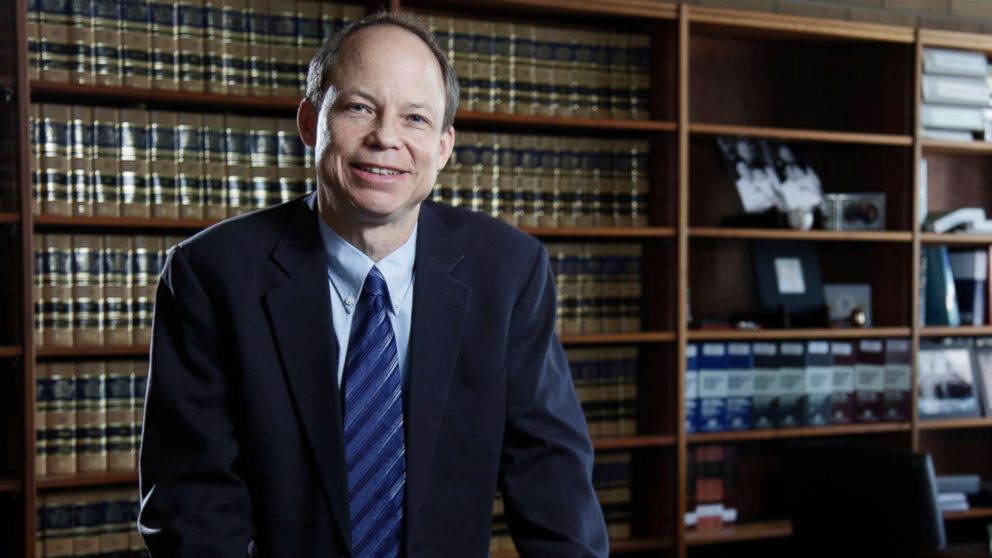California judge fights recall over Stanford swimmer's sex assault sentencing
The California judge who sparked national outrage in 2016 when he sentenced a Stanford University swimmer to just six months in jail for sexually assaulting woman broke his silence on Tuesday, ahead of a recall vote that could make him the first California judge ousted from office in 86 years.
Santa Clara County Judge Aaron Persky urged voters to reject the recall effort during the Tuesday press conference, saying that it would “threaten the integrity of our justice system.”
Persky, who said he stands by his sentencing decision, insisted that there must be a separation between public opinion and the judicial process.
“This is the political playbook for those who want to oust judges, whether it be at the trial court, on a recall, or whether it be a state Supreme court Justice, it’s the politics of fear,” Persky told reporters. “It’s to appeal to the public’s fear of crime.”
In June, 2016, a California jury found star Stanford swimmer Brock Allen Turner guilty of three counts of sexual assault for molesting an unconscious woman behind a dumpster.
Turner faced a maximum sentence of 14 years in prison, but Persky sentenced the young athlete to six months in jail plus probation, saying he feared that a longer sentence would have a “severe impact” on Turner’s future. The swimmer was released on good behavior after three months behind bars.
Days after the sentencing, BuzzFeed News published a powerful victim impact statement that the woman had read to Persky in court prior to sentencing, in which she described the horror and humiliation of sexual assault and the ultimate frustration at bringing assailants like hers to justice. ABC News does not normally identify people who say they were victims of sexual assault.
"This is the political playbook for those who want to oust judges...it's the politics of fear."
“We have all been devastated,” the victim, identified in court as Emily Doe, wrote in her victim impact statement. “Your damage was concrete; stripped of titles, degrees, enrollment. My damage was internal, unseen, I carry it with me. You took away my worth, my privacy, my energy, my time, my safety, my intimacy, my confidence, my own voice, until today.”
Turner’s sentencing led to a recall effort headed by Stanford law professor Michele Dauber, and garnered nearly 100,000 signatures, far more than necessary to place the recall vote on the upcoming June 5th county ballot.
Persky said he understood his critics’ frustrations over the sentencing, but said that recalling him is not the answer.
“I think women are frustrated by how they’re treated in society, how they’re treated by the criminal justice system. We know that sexual assault is under reported. So that passion is genuine, it needs to be expressed.” He went onto blame people’s limited understanding of the case as the cause of outrage. He pleaded, “Let’s use that passion not for judicial recall. Let’s use it for constructive, productive purpose.”
A preliminary investigation by California’s independent Commission on Judicial Performance found “no clear and convincing evidence of misconduct” by Persky in the Turner sentencing, and voted unanimously to close the probe.
While the recall campaign has drawn the support of elected officials across the country, including New York’s junior senator Kirsten Gillibrand, Persky also has his supporters.
In a statement signed by 95 legal scholars, Persky’s supporters argued that “the mechanism of recall was designed for and must be limited to cases where judges are corrupt or incompetent or exhibit bias,” according to CBS News. “None of these criteria applies to Judge Persky.”




